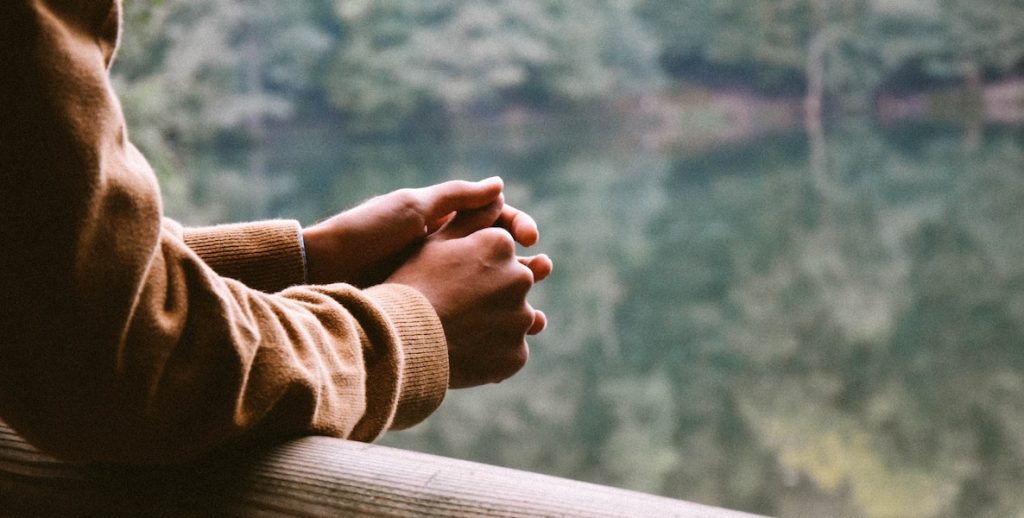Polarization is pulling hard at our cultural seams. This feels true in our families, in our communities, and in our country. We need to practice skills that can help us stitch ourselves together, stronger.
Hamas’s brutal terror attacks followed immediately by pro-Palestinian protests have exacerbated already high tensions in the U.S. Those critical of what they see as an intolerant “woke agenda” and those critical of what they see as an intolerable inequitable status quo increasingly can’t see the humanity in each other.
Most of us are feeling stress. Under stress, most of us are not our best selves. Under stress, most of us get defensive and angry. I do. Just ask my wife. Or my partners. Or my colleagues. Or my best friends.
I find that this defensiveness, and its other-shade-of-anger twin righteousness, comes up a lot in the work I do on racial and economic justice. These emotions show up, of course, in shared spaces that are multiracial and multigender, and they also show up in affinity spaces like White Men for Racial Justice, a community of practice with which I’m spending more and more of my time. These issues — even before we mix in Israel-Palestine — are so fraught with the landmines of deeply, sometimes unconsciously, held beliefs, values and identities that we often don’t know why we are somewhere between uncomfortable and outraged as often as we are.
One of the tools I use to help me comes from a Headspace guided meditation that invited me to ask myself this question:
Who or what am I most resisting right now?
I have found that simply asking myself this question acts as a speed bump to slow myself down, sometimes breaking the circuit that is firing me up. This is helpful for me, and for others whom I might otherwise hurt, as it can prevent me from saying or doing something that escalates the situation and accelerates separation.
Sometimes if I allow my pause to linger, even just for a few breaths, perhaps by repeating the question to myself a few times, an image or a word or another feeling or thought will pop into my head. Sometimes that image, word, feeling, or thought will be a helpful clue as to what is causing my defensiveness or anger.
I’ve reflected on this question a lot over the last number of years, and never more than during the last seven weeks since Hamas’s brutal attack and the world’s tortured response. Whether or not you agreed with my prior Open Letter to My Fellow Jews (heck, I’m still grappling with all the what’s next that I left unaccounted for), I offer the below prayer::
Who or what am I most resisting right now?
Lord, help me lovingly resist …
People who express ideas that oversimplify complex issues.
People who speak their truth in a way that erases my lived experience and dismisses my understanding of these complex and deeply personal issues.
People who insist that their experience is the only experience that matters, their feelings the only feelings that matter, their truth the only possible truth.
Help me complicate narratives, recognizing the danger of a single story.
May I seek to understand why people see things differently than I do.
May I stretch myself to acknowledge what might be true in their perspective, even if I don’t accept everything they say, or find the way they say it helpful.
Lord, help others try to feel what I’m feeling, so they might see me more clearly.
May they reflect on what in my beliefs makes them uncomfortable and why.
May they be open to being shaped by my experience and my views.
Yet, before I can expect that of others, you have shown me that
I need to offer that to others.
That is hard and time-consuming work.
I am tempted by the easier path to settle into comfortable judgments and self-righteousness.
I am tempted to have more time to do more enjoyable things.
I am tempted to feel safer and validated in the company of those who agree with me.
Yet, I know others are also tempted to choose this same easier path.
And we will move farther apart and we will become more entrenched in our unchallenged beliefs.
Lord, give me strength to avoid this path of least resistance
that leaves me poorer, weaker, and less safe.
Jay Coen Gilbert is the co-founder of B Lab, IMPERATIVE 21, and White Men for Racial Justice.
The Citizen welcomes guest commentary from community members who represent that it is their own work and their own opinion based on true facts that they know firsthand.

